Insights from Charlotte, 5 Years After Spending 10 Months in South America
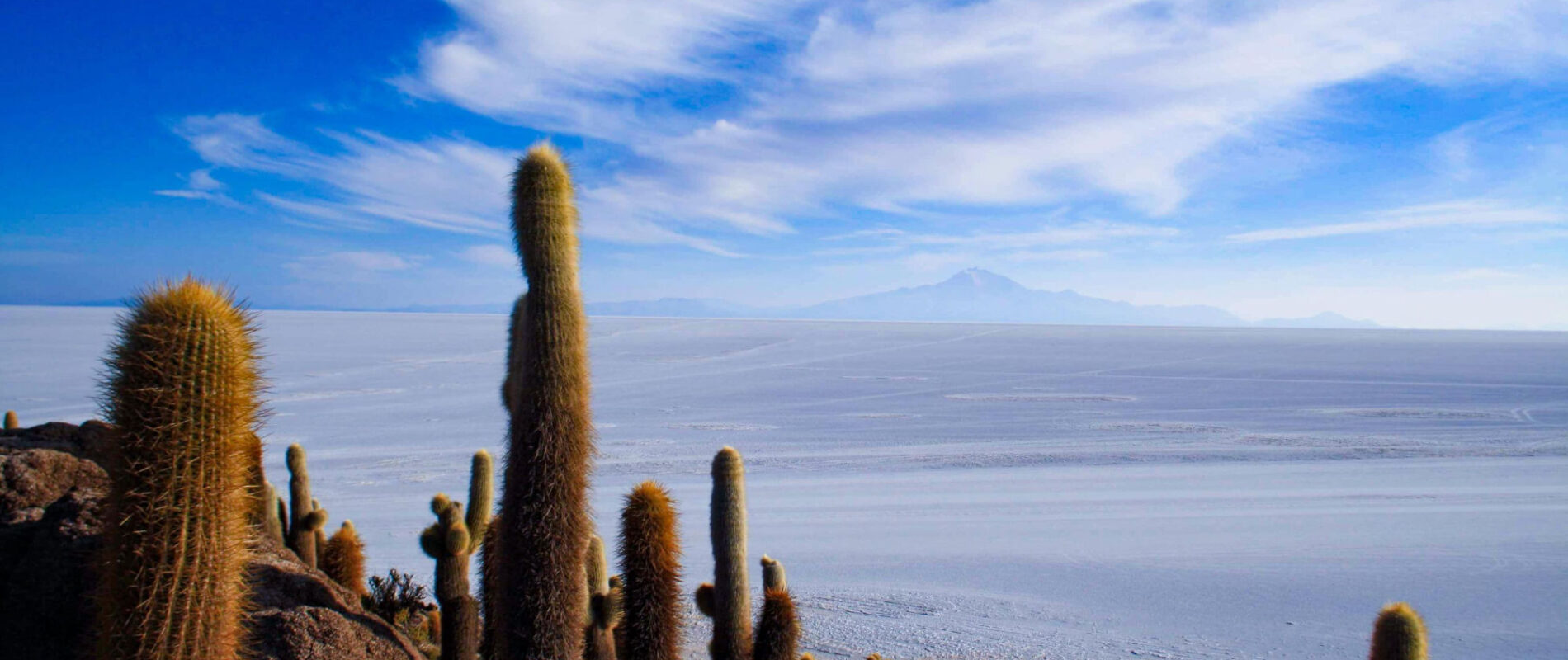
pvtistes
Hi again, Charlotte! When we first met, you were just unpacking from your 2017-2018 trip to South America. This time, we’re curious about the impact your Working Holiday adventure had on your life, five years later!
Hi, and thank you for this new interview—it gives me the chance to look back at the journey and appreciate how far I’ve come!
This trip had such a lasting impact on me.
I left France alone for Buenos Aires in 2017, with a big backpack I could barely carry on my shoulders, and no idea what would lie ahead. I went with the flow and I ended up exploring several countries, even though I was initially supposed to spend my 12-month Working Holiday in Argentina. Nothing was planned, everything was a surprise—the people I met along the way, the landscapes and cultures I discovered, but above all, newfound abilities I never suspected I had.
Looking back, I’d say this trip was actually an inner journey. Going off on my own halfway across the world with only my backpack to go by was quite a challenge!
And if I pause and reflect on the experience, I remember the moments of revelation I had about myself. I was completely free, face-to-face with incredible landscapes and immersed in various cultures, so I was able to focus on myself. I rarely had a mobile network and Wi-Fi access was scarce—this forced me to reflect, write, analyze my experiences and try to understand what I was looking for, especially what pushed me to travel solo.
This trip offered insights into myself. I realized that I have strong adaptability skills and that being on my own doesn’t bother me because I’ve learned to enjoy my own company. I built self-confidence—I had very, very low self-confidence before I left. I had always let other people define me and I thought that was who I was. I had been stereotyped as a kid—”Charlotte is shy, sensitive, she needs her own little world around her, she’s emotionally vulnerable, she’s optimistic, she can’t stand up for herself, she agrees with everyone, she doesn’t say what she truly thinks…”. The fact that I didn’t have to be that person was new to me.
I felt like myself during this long trip. I discovered that I’m very sociable, that I open up easily to others, that I can adapt easily to the environment, that I don’t need to stick to familiar places, and that I actually hate routine! Boredom is my worst enemy. On the other hand, yes, I’m very sensitive and as optimistic as ever. I’ve become much more assertive since this trip too, and I’m learning to apply this skill in the workplace. All this comes from the self-confidence I didn’t have before leaving and that I needed to find on my own. These are just a few examples. You don’t need to travel across the world to find out who you really are—taking time alone and working on yourself can do the trick.
That said, going away confirmed my passion for travelling, especially backpacking! I’m no longer afraid to travel solo. I very much enjoy travelling with other people as well but it’s a completely different experience. This trip also showed me how to venture out of my comfort zone, which is a very useful skill to have in everyday life. When I’m dealing with an uncomfortable situation—at work or in life in general—or when I’m afraid of a challenge ahead, I remember what I’ve been through on this long journey, the struggles I faced, and this gives me the courage to step out of my comfort zone once again to move on and continue my learning and personal development journey.
This trip had such a lasting impact on me.
I left France alone for Buenos Aires in 2017, with a big backpack I could barely carry on my shoulders, and no idea what would lie ahead. I went with the flow and I ended up exploring several countries, even though I was initially supposed to spend my 12-month Working Holiday in Argentina. Nothing was planned, everything was a surprise—the people I met along the way, the landscapes and cultures I discovered, but above all, newfound abilities I never suspected I had.
Looking back, I’d say this trip was actually an inner journey. Going off on my own halfway across the world with only my backpack to go by was quite a challenge!
And if I pause and reflect on the experience, I remember the moments of revelation I had about myself. I was completely free, face-to-face with incredible landscapes and immersed in various cultures, so I was able to focus on myself. I rarely had a mobile network and Wi-Fi access was scarce—this forced me to reflect, write, analyze my experiences and try to understand what I was looking for, especially what pushed me to travel solo.
This trip offered insights into myself. I realized that I have strong adaptability skills and that being on my own doesn’t bother me because I’ve learned to enjoy my own company. I built self-confidence—I had very, very low self-confidence before I left. I had always let other people define me and I thought that was who I was. I had been stereotyped as a kid—”Charlotte is shy, sensitive, she needs her own little world around her, she’s emotionally vulnerable, she’s optimistic, she can’t stand up for herself, she agrees with everyone, she doesn’t say what she truly thinks…”. The fact that I didn’t have to be that person was new to me.
I felt like myself during this long trip. I discovered that I’m very sociable, that I open up easily to others, that I can adapt easily to the environment, that I don’t need to stick to familiar places, and that I actually hate routine! Boredom is my worst enemy. On the other hand, yes, I’m very sensitive and as optimistic as ever. I’ve become much more assertive since this trip too, and I’m learning to apply this skill in the workplace. All this comes from the self-confidence I didn’t have before leaving and that I needed to find on my own. These are just a few examples. You don’t need to travel across the world to find out who you really are—taking time alone and working on yourself can do the trick.
That said, going away confirmed my passion for travelling, especially backpacking! I’m no longer afraid to travel solo. I very much enjoy travelling with other people as well but it’s a completely different experience. This trip also showed me how to venture out of my comfort zone, which is a very useful skill to have in everyday life. When I’m dealing with an uncomfortable situation—at work or in life in general—or when I’m afraid of a challenge ahead, I remember what I’ve been through on this long journey, the struggles I faced, and this gives me the courage to step out of my comfort zone once again to move on and continue my learning and personal development journey.
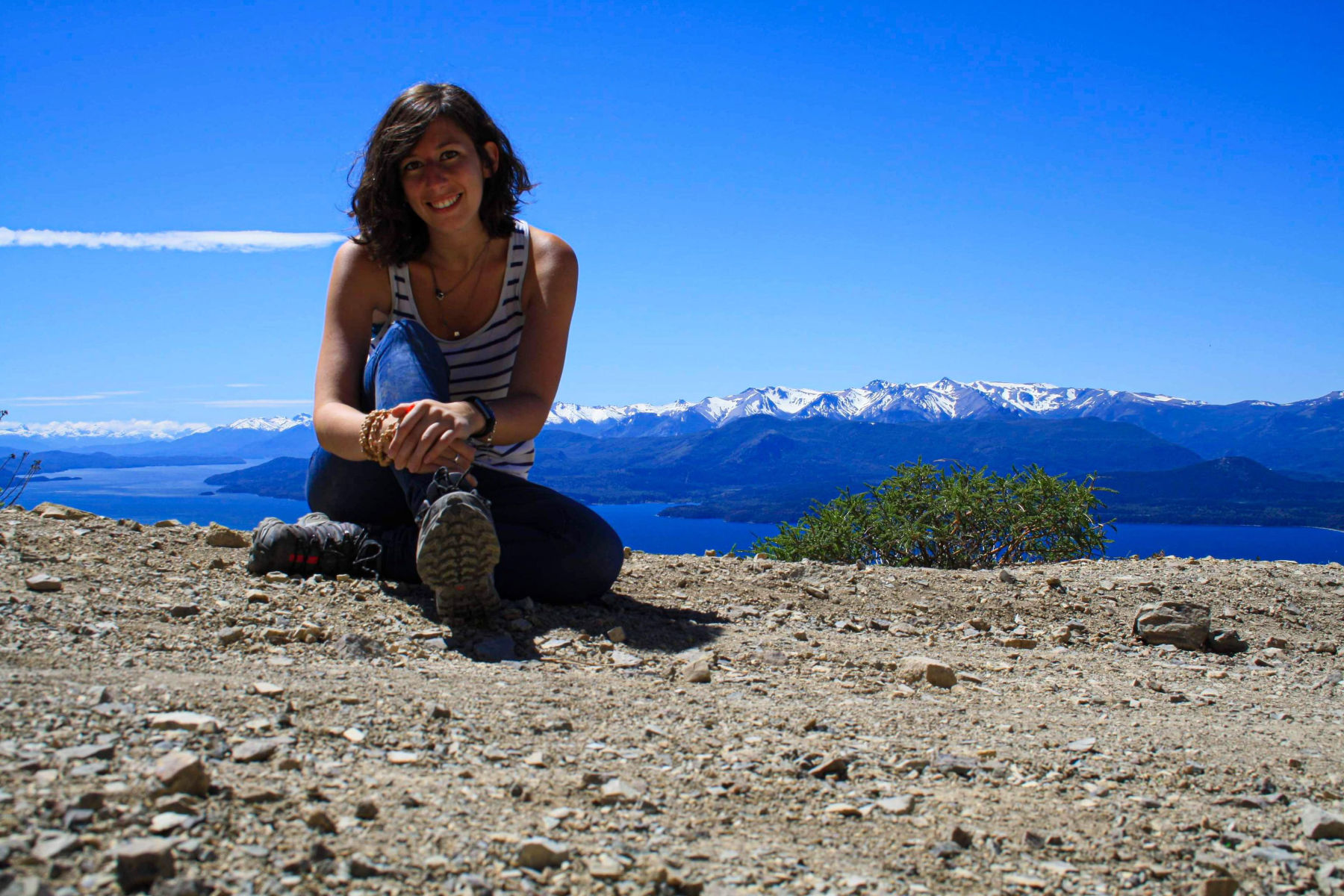
pvtistes
Which country stood out the most and why?
Three countries come to mind for different reasons—Argentina, Colombia, and Bolivia.
Argentina was love at first sight. It was my starting point and it felt like home to me, which is strange considering I was thousands of kilometres from France. I met amazing people in Argentina. In fact, I’m still in touch with one of them. I lived unique experiences and I fell in love with Patagonia.
I loved Colombia as well. It’s a cheerful and colourful part of the world with a special atmosphere. There’s music everywhere, Colombians are kind people who love life and the country features unique lush landscapes.
Finally, Bolivia, where I spent three months working with an NGO called “Bolivia Digna.” I was staying in an NGO-owned house in downtown Cochabamba along with a bunch of French, Belgians, Germans, and Dutch volunteers—there was a guy from Austria as well so yeah, a bunch of Europeans and a super lively atmosphere. The NGO opened a community centre for kids in two underprivileged neighbourhoods (shantytowns, really). A school was built in each of these two neighbourhoods, with classes facilitated by Bolivian volunteers in the morning. In the afternoons, international volunteers like us offered educational games and sports activities. The kids were so grateful we were spending time with them. They hated holidays because it meant they had to go to work, and they really missed school. We also helped out at school in the morning whenever possible. Since I’m a qualified childcare assistant, I also went to the hospital twice a week to visit sick kids who didn’t see a lot of people. That’s why this country made such an impression on me. I hope to go back there one day and help this population I truly care about. I’m still in touch with the NGO director, and things are moving in the right direction, which is great to hear even if I’m no longer involved.
I loved Colombia as well. It’s a cheerful and colourful part of the world with a special atmosphere. There’s music everywhere, Colombians are kind people who love life and the country features unique lush landscapes.
Finally, Bolivia, where I spent three months working with an NGO called “Bolivia Digna.” I was staying in an NGO-owned house in downtown Cochabamba along with a bunch of French, Belgians, Germans, and Dutch volunteers—there was a guy from Austria as well so yeah, a bunch of Europeans and a super lively atmosphere. The NGO opened a community centre for kids in two underprivileged neighbourhoods (shantytowns, really). A school was built in each of these two neighbourhoods, with classes facilitated by Bolivian volunteers in the morning. In the afternoons, international volunteers like us offered educational games and sports activities. The kids were so grateful we were spending time with them. They hated holidays because it meant they had to go to work, and they really missed school. We also helped out at school in the morning whenever possible. Since I’m a qualified childcare assistant, I also went to the hospital twice a week to visit sick kids who didn’t see a lot of people. That’s why this country made such an impression on me. I hope to go back there one day and help this population I truly care about. I’m still in touch with the NGO director, and things are moving in the right direction, which is great to hear even if I’m no longer involved.
pvtistes
What’s your best memory from this period of your life?
That’s a tricky question! I’m most enthusiastic when I talk about my time in Bolivia working for the NGO, I think. It was the best way to end the trip, even if it made it painful to leave and go back to France afterwards. Those three months aligned with many of my personal and professional values. In fact, it was the kind of experience I was looking for when I left for South America, even if back then I hadn’t realized it.
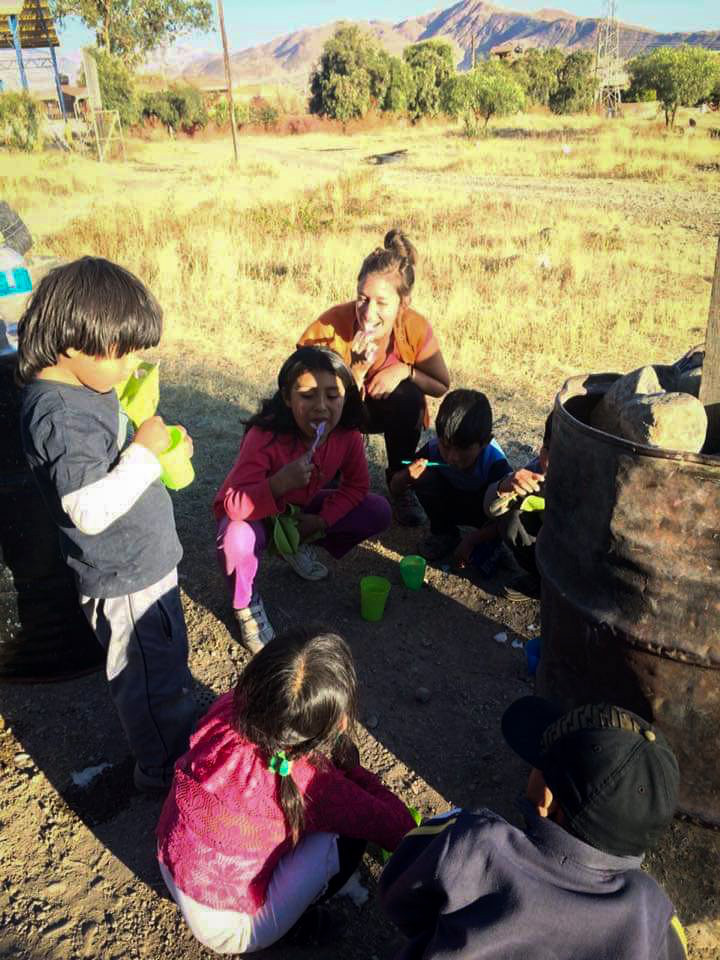
pvtistes
And what would be a not-so-good memory from the adventure?
Answering this question is much easier—the holiday season in Chile! Most Chileans are looking forward to summer at that time of year, and they don’t really seem to care about Christmas, which is a holiday I love! Being away from home during that period is a weird experience, even more so because my host family didn’t understand how I felt. I was working in a tea room as a waitress and kitchen assistant in exchange for board. The family was overall nice and kind but it was hard to see eye to eye on certain subjects. It was the most difficult and saddest period of my trip. It felt like December was never going to end!
pvtistes
What do you think are the biggest differences between Latin American and European cultures?
My best friend is currently spending a few months on the road with her husband, and they’re in Latin America. It’s stirring up feelings. Mostly, I realized I forgot many details over time, like the way public transportation works over there, how dirty streets can be, the complete lack of any environmental concern whatsoever (apparently there are recycling cans now but few people use them properly), how exotic food can be (guinea pig meat in Peru!), the fact that bargaining rules, that there’s always music in the streets, that “roads” aren’t always paved, the whole lengthy border-crossing process…
Travellers tend to remember the scenery—it’s often memorable and well, chances are you took pictures of it. Moments spent with locals are also unforgettable because they are unique. But I noticed that after many months in Latin America, I stopped paying attention to my environment because it had become normal to me and I had totally forgotten all these little details that did make it exotic. Like, I didn’t mention my environment or the general atmosphere much when I was sharing stories from the trip.
It’s only now, following my friend’s trip as she mentions what she finds surprising and points out the differences between this continent and ours, that I fully appreciate the cultural shock and the many cultural differences. But during my own trip, I adapted so much to the environment very few things surprised me after a few months.
Now, I do remember that locals have a very personal definition of “being on time.” Take buses for instance—they don’t actually leave on time. And I’m not even talking about “collectivo” drivers who wait until the bus is full to leave (one of my buses was once delayed for 2.5 hours because we were waiting for more passengers!)! The same goes for meeting friends. If you’re meeting someone at 2 p.m., arriving before 3 p.m. counts as being “on time”! I eventually got used to it when I lived with an Argentinian woman in Cordoba.
Let’s be honest about local cuisine—it’s good but not very healthy. I had a hard time eating a balanced diet. Latin America is all about starchy foods (mainly rice and potatoes) and meat (very, very good meat, though!), and most of the time, the default cooking method is frying! Bolivians cook pasta in a big frying pan with oil and a little water—I had never seen that anywhere else, Italian people would have been so offended! I had better luck with food during tours. The cooks prepared delicious balanced meals with plenty of variety during my trek to Machu Picchu. I ate the best ceviche ever! I had a similar pleasant food experience when I joined a 4×4 tour to Sur Lípez and Salar de Uyuni in Bolivia, we were served delicious fresh vegetables.
Another big difference I’d point out is how warm and welcoming the locals are. They make you feel comfortable, they’re generous, they try to get to know you, and they genuinely like to share the history of their country, region, and town. People were quick to make me feel part of their group when I arrived in Cordoba, Argentina—I was living with a woman named Evangelina and her friends became my friends even though I could barely communicate in Spanish. They didn’t make fun of me, they just tried to make me feel at home and they offered me a unique experience. In Colombia, I also stayed with a local who was keen to share his “arepa” recipes with us, and in Bolivia, I was deeply touched by the locals’ genuine kindness and warm welcome. I’ve always come across genuinely generous and open-minded people who weren’t wary of me, a foreign backpacker.
Travellers tend to remember the scenery—it’s often memorable and well, chances are you took pictures of it. Moments spent with locals are also unforgettable because they are unique. But I noticed that after many months in Latin America, I stopped paying attention to my environment because it had become normal to me and I had totally forgotten all these little details that did make it exotic. Like, I didn’t mention my environment or the general atmosphere much when I was sharing stories from the trip.
It’s only now, following my friend’s trip as she mentions what she finds surprising and points out the differences between this continent and ours, that I fully appreciate the cultural shock and the many cultural differences. But during my own trip, I adapted so much to the environment very few things surprised me after a few months.
Now, I do remember that locals have a very personal definition of “being on time.” Take buses for instance—they don’t actually leave on time. And I’m not even talking about “collectivo” drivers who wait until the bus is full to leave (one of my buses was once delayed for 2.5 hours because we were waiting for more passengers!)! The same goes for meeting friends. If you’re meeting someone at 2 p.m., arriving before 3 p.m. counts as being “on time”! I eventually got used to it when I lived with an Argentinian woman in Cordoba.
Let’s be honest about local cuisine—it’s good but not very healthy. I had a hard time eating a balanced diet. Latin America is all about starchy foods (mainly rice and potatoes) and meat (very, very good meat, though!), and most of the time, the default cooking method is frying! Bolivians cook pasta in a big frying pan with oil and a little water—I had never seen that anywhere else, Italian people would have been so offended! I had better luck with food during tours. The cooks prepared delicious balanced meals with plenty of variety during my trek to Machu Picchu. I ate the best ceviche ever! I had a similar pleasant food experience when I joined a 4×4 tour to Sur Lípez and Salar de Uyuni in Bolivia, we were served delicious fresh vegetables.
Another big difference I’d point out is how warm and welcoming the locals are. They make you feel comfortable, they’re generous, they try to get to know you, and they genuinely like to share the history of their country, region, and town. People were quick to make me feel part of their group when I arrived in Cordoba, Argentina—I was living with a woman named Evangelina and her friends became my friends even though I could barely communicate in Spanish. They didn’t make fun of me, they just tried to make me feel at home and they offered me a unique experience. In Colombia, I also stayed with a local who was keen to share his “arepa” recipes with us, and in Bolivia, I was deeply touched by the locals’ genuine kindness and warm welcome. I’ve always come across genuinely generous and open-minded people who weren’t wary of me, a foreign backpacker.
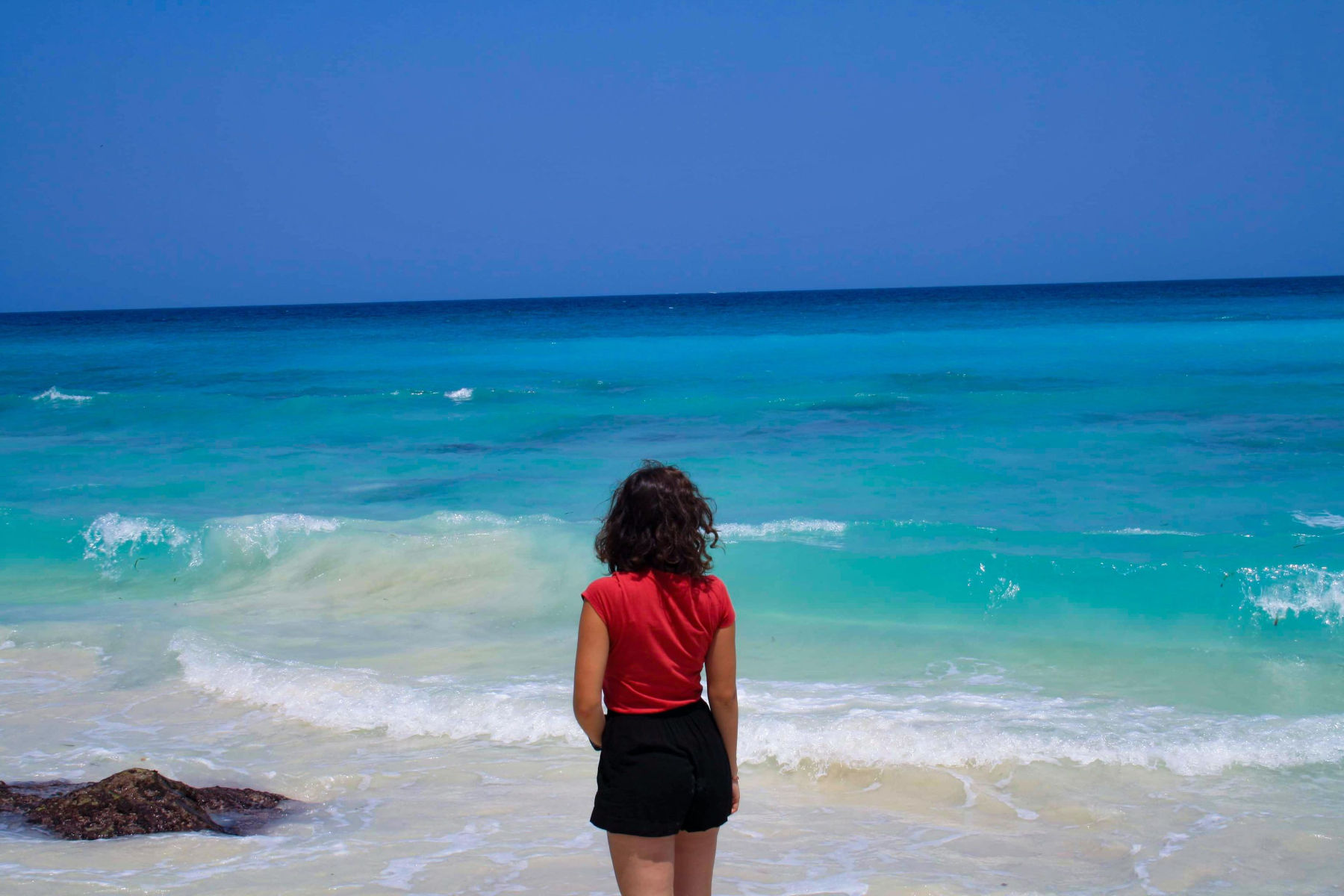
pvtistes
Were you a different person after your trip?
Yes, in some respects. When I got home, I wanted to tell everyone I knew about my adventures, and what I’d seen and experienced. I wanted to prove to them that I had changed, that I had worked on myself, and that I was an “adventurer,” a brave and independent woman. In hindsight, I didn’t have anything to prove after all. What I accomplished and the choices I made were for me and me alone. But I remember feeling like shouting “You were so wrong about me!” or something to that effect. I quickly came back to reality because I realized that my friends and family were impressed and proud of me. I didn’t have to point anything out. I didn’t need to prove anything to them and, above all, I needed to be brought back to reality.
Yes, this trip was quite a milestone in my life, a unique adventure, a big challenge and a break for me, but I had to keep in mind that the world kept spinning for friends and relatives. I quickly got back to work a month after coming back, which helped me reconnect better to my French life.
Today, I like to remind myself that we’re lucky in France and in Europe in general to enjoy a decent quality of life and various rights as citizens.
I also tend to be better at enjoying the moment, I’m more likely to sign up for crazy plans, and I try to get out of my comfort zone on a regular basis. This trip simply taught me that anything is possible, so why not try anything? I only have one life, and I intend to make the most of it! Since then, I no longer picture life the way society “sells” it—get married, have kids, shop. I don’t want that kind of life, although I do respect people who find it fulfilling.
Yes, this trip was quite a milestone in my life, a unique adventure, a big challenge and a break for me, but I had to keep in mind that the world kept spinning for friends and relatives. I quickly got back to work a month after coming back, which helped me reconnect better to my French life.
Today, I like to remind myself that we’re lucky in France and in Europe in general to enjoy a decent quality of life and various rights as citizens.
I also tend to be better at enjoying the moment, I’m more likely to sign up for crazy plans, and I try to get out of my comfort zone on a regular basis. This trip simply taught me that anything is possible, so why not try anything? I only have one life, and I intend to make the most of it! Since then, I no longer picture life the way society “sells” it—get married, have kids, shop. I don’t want that kind of life, although I do respect people who find it fulfilling.
pvtistes
What have you been up to since your adventure?
I flew back to France in July 2018 with many projects in mind. It was important for me to plan my future to ease back into normal life after the trip. So I wanted to take the competitive exams to become a nurse, but in the meantime, my goal was to work with child protective services as a childcare assistant.
I worked in a daycare centre for three months then I eventually got a job with child protective services after submitting many applications. I worked there from January to August 2019 while preparing for the nursing exam, which I passed. I also volunteered with the Red Cross for a while. I didn’t travel much because I’d been so busy and needed to save money. I only went to Budapest on my own in January 2019, which was great but it was a far too short trip.
I was in nursing school from 2019 to 2022—between the financial sacrifice of going back to school and the pandemic, I didn’t travel much, but I still explored a few places in France. I couldn’t afford to go anywhere anyway, pandemic or not. I graduated in July 2022 and got a job in a teaching hospital. This is the job I’ve been dreaming about since I was 7—I look after extremely preterm babies.
I was finally able to get away for a few days in Lisbon in June 2022 for my best friend’s bachelorette party, and I was thrilled to be going on a bit of an adventure again!
I worked in a daycare centre for three months then I eventually got a job with child protective services after submitting many applications. I worked there from January to August 2019 while preparing for the nursing exam, which I passed. I also volunteered with the Red Cross for a while. I didn’t travel much because I’d been so busy and needed to save money. I only went to Budapest on my own in January 2019, which was great but it was a far too short trip.
I was in nursing school from 2019 to 2022—between the financial sacrifice of going back to school and the pandemic, I didn’t travel much, but I still explored a few places in France. I couldn’t afford to go anywhere anyway, pandemic or not. I graduated in July 2022 and got a job in a teaching hospital. This is the job I’ve been dreaming about since I was 7—I look after extremely preterm babies.
I was finally able to get away for a few days in Lisbon in June 2022 for my best friend’s bachelorette party, and I was thrilled to be going on a bit of an adventure again!
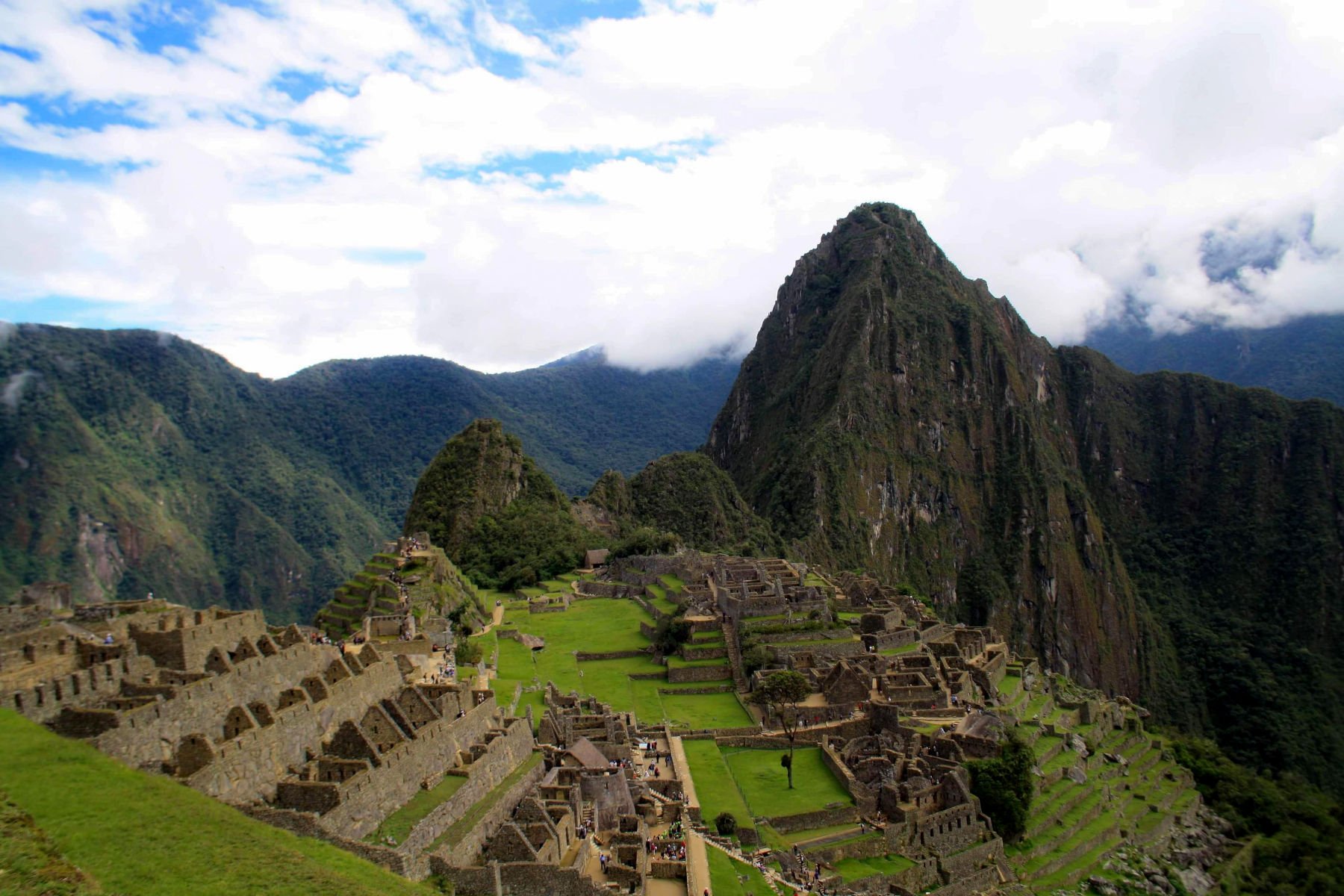
pvtistes
Was your long trip an asset or a red flag to employers when you came back?
Definitely an asset! And I think it’s the case across employers and industries who value adaptability and foreign language skills, cross-cultural sensitivity, grit, self-reliance, self-confidence and more. I’m a nurse and during interviews, my manager chose to talk about my adventure rather than ask about my internship experiences, for example.
pvtistes
Do you have any advice for future expatriates or anyone still wondering whether going abroad is the right move?
If you’re tempted but scared to go, go for it anyway!
Don’t listen to people who think you can’t do it—only you can figure it out! Avoid planning too far ahead and saying “I’m leaving for at least a year,” because I find it puts a lot of pressure on yourself. It’s also hard on your ego when you tell others “I’ll be back in a year” and fly back home four months later. When you’re feeling anxious, just tell yourself it’s a vacation. Take it one day at a time. If it’s not working out for you, then just go home. Leaving home is a brave thing to do, and few people dare to take the plunge! So what if you “only” spent two months abroad instead of a year? You gave it a shot, and you’ve probably already learned a lot. It’s not a failure. In the end, taking my trip one day at a time, I ended up being away for 10 months, and it wasn’t the trip I had originally pictured in my head.
It’s also important to leave room for unexpected experiences and moments—sometimes, people you meet along the way or various events will call for a change of plans. Just take the plunge and you won’t regret it, you’ll see. It’s YOUR project, YOUR experience, YOUR choices, and nobody has the right to judge you. It would be a shame to miss out on one of the greatest adventures of your life. It’s a very rewarding experience, no matter how long you spend on the road and where you go.
It’s also important to leave room for unexpected experiences and moments—sometimes, people you meet along the way or various events will call for a change of plans. Just take the plunge and you won’t regret it, you’ll see. It’s YOUR project, YOUR experience, YOUR choices, and nobody has the right to judge you. It would be a shame to miss out on one of the greatest adventures of your life. It’s a very rewarding experience, no matter how long you spend on the road and where you go.
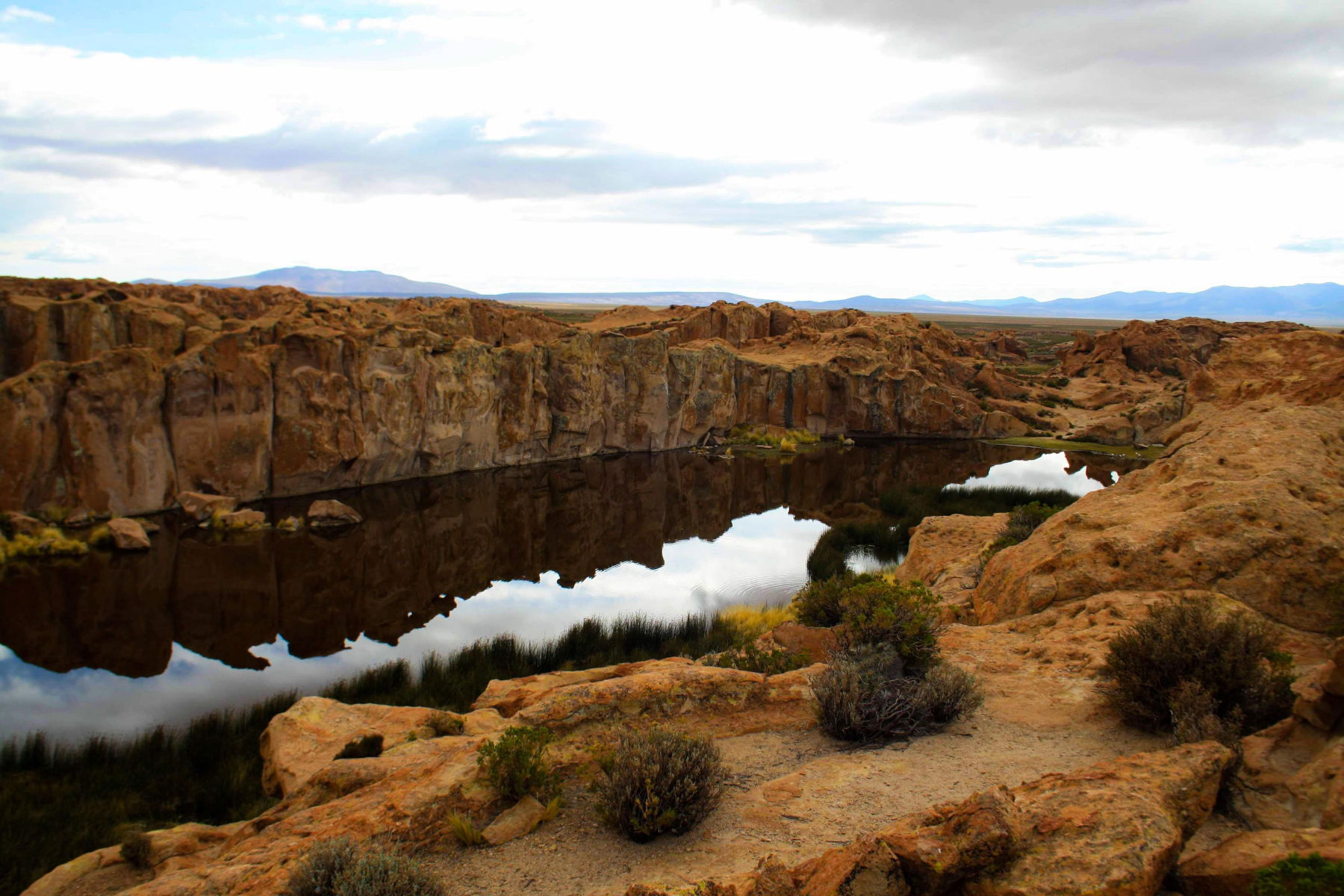
pvtistes
Finally, what are your plans?
Travel-wise, I’m planning a road trip to Iceland with friends in June 2023. I can’t wait to pack and head off on an adventure!
Career-wise, I’m planning to get into humanitarian aid work in the next three to four years. I’m already in touch with NGOs to find out about job requirements, working conditions, potential contracts and so on. This is a long-term project, you need at least two years of experience as a nurse and at least a B2 level in English, which I don’t have yet. So I’m trying to work on my English, as well as my Spanish, to get certified in that language too.
In the meantime, hopefully, in a year or two, I’m planning to spend one to three months as a volunteer nurse in small organizations/NGOs in Asia. I’d love to work again for the same NGO in Bolivia one day. I’m lucky enough to be in a field where workers are needed all over the world, so may as well make the most of it! I’m optimistic about the future.
I put my heart into projects and it’s been a success so far—the key is to believe in what you do.
Career-wise, I’m planning to get into humanitarian aid work in the next three to four years. I’m already in touch with NGOs to find out about job requirements, working conditions, potential contracts and so on. This is a long-term project, you need at least two years of experience as a nurse and at least a B2 level in English, which I don’t have yet. So I’m trying to work on my English, as well as my Spanish, to get certified in that language too.
In the meantime, hopefully, in a year or two, I’m planning to spend one to three months as a volunteer nurse in small organizations/NGOs in Asia. I’d love to work again for the same NGO in Bolivia one day. I’m lucky enough to be in a field where workers are needed all over the world, so may as well make the most of it! I’m optimistic about the future.
I put my heart into projects and it’s been a success so far—the key is to believe in what you do.
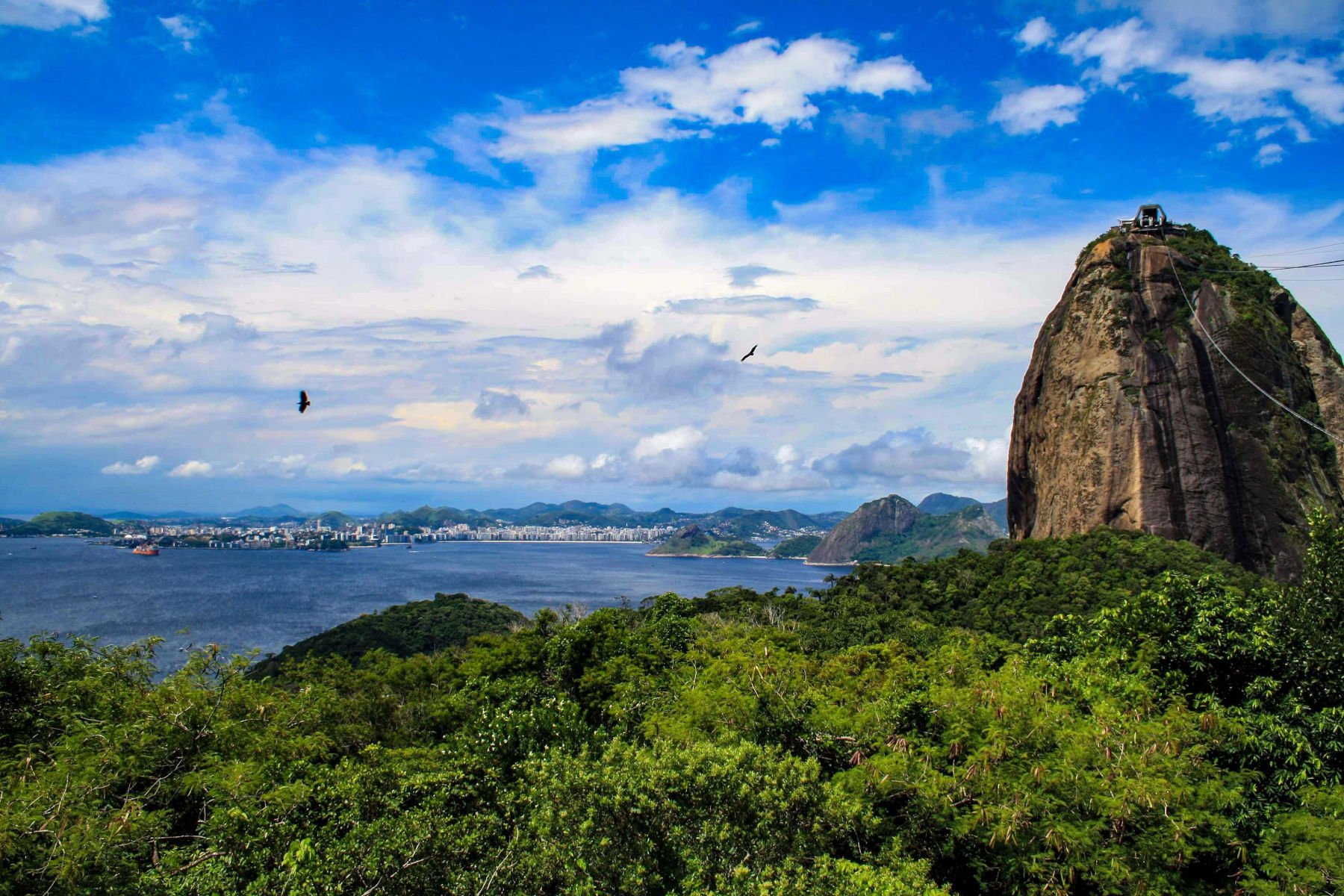
Marie
En PVT au Canada de novembre 2021 à 2023, je répondrai à vos questions avec plaisir. Après un road trip en Amérique latine (Colombie, Bolivie, Pérou, Guatemala), je suis rentrée en France en juin 2024.
On a Working Holiday Visa in Canada from November 2021 to 2023, I will gladly answer your questions. After a road trip in Latin America (Colombia, Bolivia, Peru, Guatemala), I returned to France in June 2024.
















 Français
Français English
English


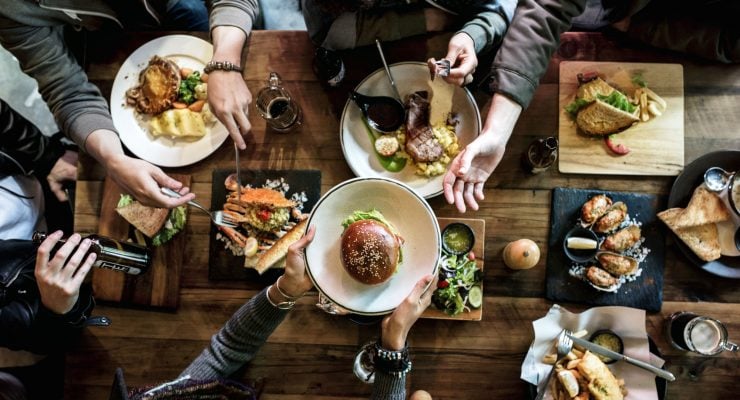
0 comments
{{like.username}}
Loading...
Load more